Called to Serve Others: Meet Volunteer Coordinator Tamara Jaroszewski
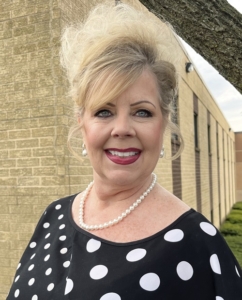 As a young woman, Tamara Jaroszewski of Harrisburg experienced the profound impact of hospice services when her sister died of breast cancer at age 40. For Tamara, hospice work became a beacon of hope and inspiration. She felt called to help patients during their end-of-life journey. Her call was recently answered when she joined Homeland’s Hospice team as the volunteer coordinator. Homeland Hospice, a nonprofit hospice program, serves communities throughout Central Pennsylvania.
As a young woman, Tamara Jaroszewski of Harrisburg experienced the profound impact of hospice services when her sister died of breast cancer at age 40. For Tamara, hospice work became a beacon of hope and inspiration. She felt called to help patients during their end-of-life journey. Her call was recently answered when she joined Homeland’s Hospice team as the volunteer coordinator. Homeland Hospice, a nonprofit hospice program, serves communities throughout Central Pennsylvania.
“I proudly do this work in honor of my sister,” Tamara says. “I couldn’t imagine doing anything else.”
Tamara joined Homeland after working as a volunteer coordinator for a large hospice organization that served a sizable region. Her work with Homeland gives Tamara the opportunity to build relationships with patients and their families and the dedicated cadre of hospice volunteers. Homeland’s life-changing work is made possible by volunteers who share their time and compassion with others. From working directly with patients to helping with administrative tasks, volunteers are the lifeblood of the organization.
“I am getting to know our volunteers personally,” Tamara adds. “I am overwhelmed by their kindness and dedication to our work.”
Many volunteers find personal satisfaction from the relationships formed through patient visits. Often, patients think of volunteers as an extension of their family. Tamara helps support these relationships and assists volunteers to ensure they feel supported in their roles. When a volunteer returned to her scheduled patient visits after a reprieve to grieve the death of her father, Tamara was by her side.
“I knew her first visit back could be difficult,” Tamara says. “We approached it as a team.”
While Tamara has been with Homeland for only a few months, she is impressed by the longevity of service and creativity volunteers bring to their work. Many individuals have dedicated years to the organization and continue to raise their hands to take on new and different projects to bring comfort to patients and their families.
Tamara is excited to see more people participate in My Life, My Legacy, which gives hospice patients an opportunity to tell their life story to a volunteer who records the responses and allows the family to add their thoughts and recollections, as well as photographs. The end result is a printed book for the patient to help him/her find peace, and pride in his/her life story. The book also helps families preserve memories after their loved one dies.
“The books are beautifully written,” Tamara adds. “Our volunteers put their heart and souls into these projects and it shows.”
As Tamara grows in her tenure with Homeland, she looks forward to shepherding new projects as they evolve to benefit patients. For her, each day is a new and wonderful opportunity to build on Homeland’s rich history of service.
“You know when you are in the right place,” Tamara says. “I feel I was destined to do this work.”
For more information on volunteer opportunities with Homeland Hospice, call Tamara at (717) 221-7890.

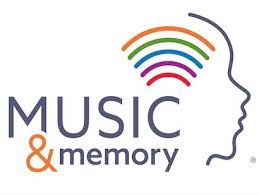 “You, my brown eyed girl.” The lyrics of “Brown Eyed Girl,” Van Morrison’s nostalgic and catchy song from 1967, is familiar to many and a portal to another time for others. For anyone growing up in the 1960s, this song and others from this era evoke memories of times with friends and the feeling of freedom that comes with youth.
“You, my brown eyed girl.” The lyrics of “Brown Eyed Girl,” Van Morrison’s nostalgic and catchy song from 1967, is familiar to many and a portal to another time for others. For anyone growing up in the 1960s, this song and others from this era evoke memories of times with friends and the feeling of freedom that comes with youth.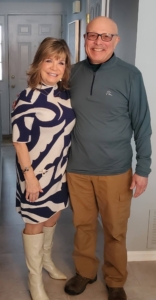 A love connection often begins at the most unexpected time. An ordinary day can be the start of an extraordinary relationship. Call it destiny or luck, 40 years ago on a cold and wintry day, Phil Talarico saw his now wife Barbara waiting for the bus to go to work. He offered her a ride and the two have been together ever since. The couple has created a beautiful life filled with faith, family and love of serving others, including volunteering with Homeland Hospice.
A love connection often begins at the most unexpected time. An ordinary day can be the start of an extraordinary relationship. Call it destiny or luck, 40 years ago on a cold and wintry day, Phil Talarico saw his now wife Barbara waiting for the bus to go to work. He offered her a ride and the two have been together ever since. The couple has created a beautiful life filled with faith, family and love of serving others, including volunteering with Homeland Hospice.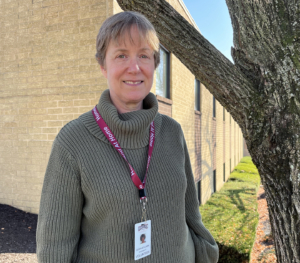 Volunteers come in many forms, and Homeland loves them all. They bring a helping hand to activities. They lend a listening ear.
Volunteers come in many forms, and Homeland loves them all. They bring a helping hand to activities. They lend a listening ear.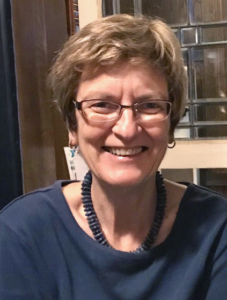
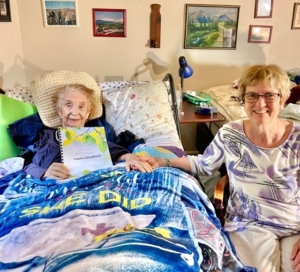 Through her experiences with the My Life, My Legacy program, Kandy has created a six-step outline to serve as a roadmap for volunteers to use as they interview patients and their families. The steps include questions about one’s early life, school years, higher education or vocation, work history, family history and further reflections. Kandy has found these questions frequently evoke treasured memories and stories.
Through her experiences with the My Life, My Legacy program, Kandy has created a six-step outline to serve as a roadmap for volunteers to use as they interview patients and their families. The steps include questions about one’s early life, school years, higher education or vocation, work history, family history and further reflections. Kandy has found these questions frequently evoke treasured memories and stories.
